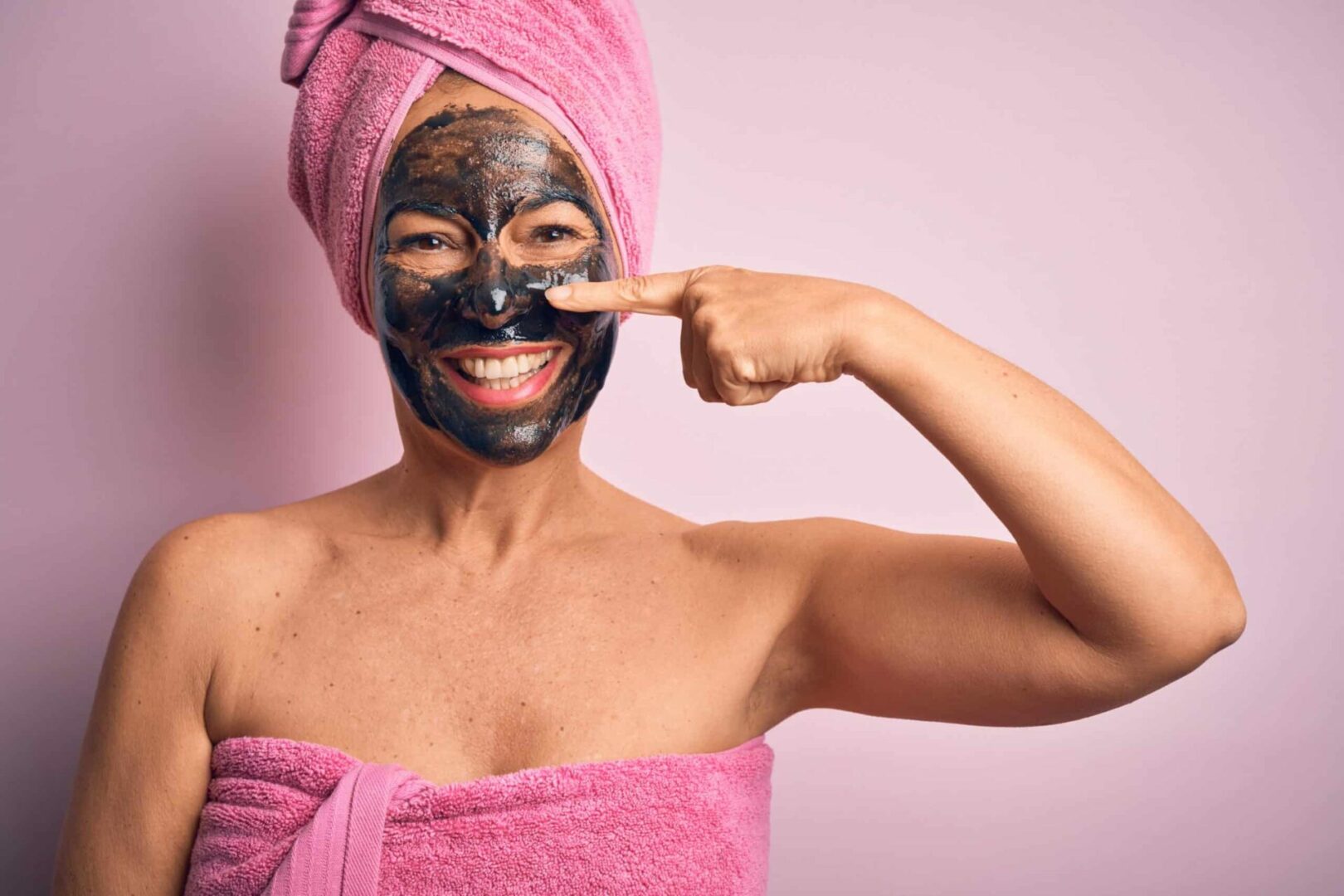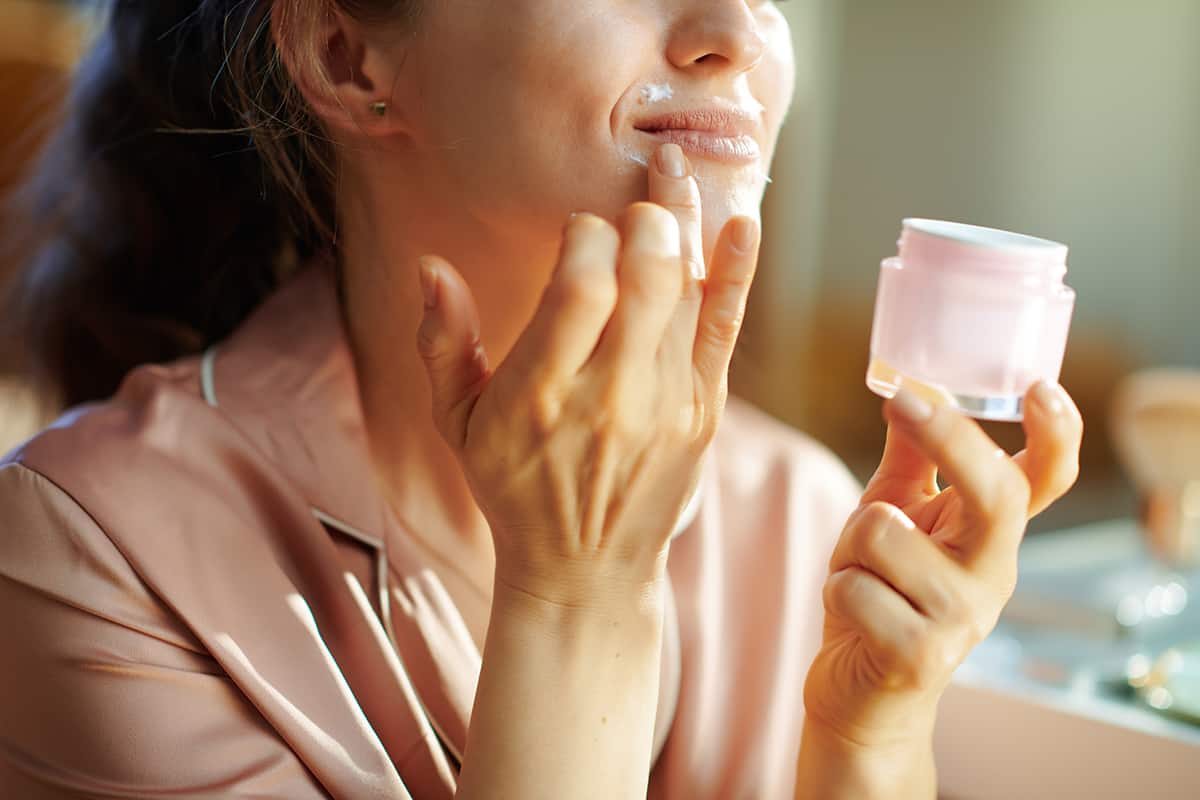“Best Vitamins for Thicker Hair Growth” Do They Exist?

By Franki Hanke
We all want to have thick, healthy hair, but it’s hard to achieve.
Every day people everywhere take a gummy vitamin in the hopes that it will help their hair grow for fuller hair with more body and shine. Most of the time this vitamin is biotin or a combination that contains biotin.
What if I told you that supplementing biotin is unnecessary and not recommended for most Americans? Suddenly the best vitamins for thicker hair growth just got a lot more complicated. In fact, there’s more to it than biotin being potentially overhyped.
It’s not just biotin either. Biotin (vitamin B7), vitamin B12, Riboflavin (vitamin B2), Thiamin (vitamin B1), niacinamide, vitamin B6, vitamin C, vitamin E, selenium, zinc, and others are all popular contenders for hair growth supplements. But, do any of these have any impact on your hairline… or just your wallet?
Do vitamins even work?
Here’s the thing, before you can consider buying a vitamin, you have to question whether you need one. If you have thinning hair, that isn’t necessarily a reason to need one either. Thinning hair or breakage, to a degree, is a normal part of aging. The reason for needing a supplemental vitamin is to have a deficiency.
There’s a rising trend of hair growth vitamins or gummies being sold right alongside our makeup as if these are equalized products but they are definitely not. Ouai, a haircare brand, is the perfect example of this having just released a supplement alongside their shampoos and hair sprays in Sephora.
There’s very little research on most of the retail store vitamins and even less regulation. With these concerns in mind, a study published in Cureus Journal of Medical Science examined 176 supplements across seven stores.
This survey…raised several safety concerns, including potential interactions, teratogenicity risks, a lack of independent third-party testing, lack of warning labels, and nutrient “overdosing”.
Here are some of the key concerns:
→ Dosages often far exceed the FDA recommended daily value.
Those dosage concerns aren’t so negligible either.
For example, Vitamin A in large doses can actually trigger hair loss.
→ Third-party testing by recognized organizations was incredibly minimal (3.4%).
→ Warning labels are often not present, so potential risks are unknown.
→ Lack of regulation allows for mistakes.
In 2008, a mislabeled concentration of selenium 200X the intended amount triggered hair loss and brittle nails for 200 people across the country before anyone caught it.
A medical toxicologist at the University of California, Daniel Lasoff said it, “There’s a lack of oversight, a lack of safety, and a lack of rigorous science.” We’re not here to support dietary supplements that at best waste your money, but at worst put you at risk.
If there are concerns, why are they everywhere?
Supplements exist in a gray area, especially the new growth of skincare and hair supplements. They are categorized by the Food & Drug Administration as a food not a drug, so there’s no requirement to prove the safety or efficacy of their claims. All these antioxidants and collagen products that are popular across social media are largely unregulated and sold not by dermatologists or other doctors but by unlicensed fans.
This distinction means that manufacturers of supplements aren’t required to understand nor publicize any potential drug interactions between ingredients. One such instance involved our fan-favorite biotin which interacted with some laboratory tests including some for cardiac and thyroid function. Yet, none of the surveyed supplements warned of this interaction.

After the risks, do they even work?
That’s the worst part. While consuming supplements often run these risky side effects, they also have little evidence of doing anything. According to Consumer Reports’ chief medical advisor Marvin M Lipman, M. D, “There is virtually no evidence that biotin supplements actually work to improve skin, hair, or nails.”
Ultimately, there’s not enough evidence to show that even the best vitamins for hair growth on the market can actually impact your hair follicles, scalp health, or overall hair appearance at all.
The Nuance of Supplements & Science
The core issue of promoting the “best hair growth vitamins” right now is a lack of strong, scientific support one way or the other. Overall, we see a lacking of information to prove they work (and to regulate them safely).
Studies that focus on clinical applications of certain ingredients like saw palmetto or folic acid can sometimes show correlation, however, the usage within certain lab settings and a real-life gummy vitamin are very different.
Oftentimes there are complications with the absorption of the ingredients from the soft-gel or a lack of consistency in the dosages. So, even if we know certain aspects that work in a lab setting, that doesn’t mean that every vitamin supplement with that ingredient on the label will do the same in your body.
This is tricky because it makes it easier for someone to make claims and show some proof, but not enough to properly prove what they say.
Get The Finer Life
Our Sunday email has tips and content you will love – exclusively for our subscribers.
"*" indicates required fields
To further complicate your research, oftentimes companies will support studies on their own products. Nutrafol, for example, has done just that. They’ve financially supported several studies showing the success of their own product. While they have reported this (which is a good sign to the efficacy of the research), it raises questions on the trustworthiness of this information especially given the ingredients within their product and the concerns for dosages and interactions as we discussed above with supplements as a whole.
Ultimately, with the current consensus of the research that’s been done, there’s mostly agreement that supplements of this kind are a cash grab, not a path to your best hair ever.
That’s not true! I took one and it worked!
We have all heard a success story, or two, or a dozen, right?
The big names in hair supplements SugarBearHair, Moon Juice, Love Beauty And Planet, Hum Nutrition, Vital Proteins, Viviscal, and SuperHair would all have you believe that they’ll give you stronger hair. They have good reviews on Amazon. They have loud fans online. However, there’s a reason for this phenomenon: placebo.
The placebo effect, which is the tendency to believe something is working because you think it should, is strong. Often times if we are told something works, spend money on that item, and invest time into taking it we will want so strongly for it to work that we actually believe it does.
How can I address my hair then?
We’ve written before on how to protect your hair from hair loss (and thinning), but if you’re experiencing hair thinning or loss at a level that doesn’t seem normal, it’s time to consult a physician.
There are some instances where you may need supplementation because of a deficiency, but these are rare. It’s best to have a medical professional make this call (not a gal on Instagram or your gut instinct in the Ulta aisle). If you need more series hair loss treatments, your doctor can advise on how to support the regrowth of new hair.
If you take other medications or supplements already, do not start taking something new without consulting your doctor. Ingredients can interact with each other in an unexpected way. You should always have your primary care provider’s insight into this possibility.
What are the best vitamins for thicker hair growth?
If you’ve been recommended to take a specific supplement from your doctor, they will usually have input on where they recommend sourcing that. However, if you’re trying to pick on your own there is one way to find a better one.
Look for reliable third-party testing from ConsumerLab.com, NSF International, or U.S. Pharmacopeia (USP). A brand can slap any of their own labels that say “verified” or “approved.” Ensure if you’re looking for this stamp of approval that it’s actually from one of these organizations.
These tests don’t prove that the item works. Rather they test the following:
→ Ingredients on the label are listed at the right potency and amount.
→ There aren’t harmful levels of contaminants.
→ The product will break down and release into the body within the time stated.
→ The product has been made following manufacturing practices outlined by the FDA and third-party guidelines.
This label doesn’t mean that they’ve tested it to actually support hair growth, just that if they list l-cysteine that it’s actually there and at the amount claimed.
How can you protect your hair health then?
Rather than supplement these items, ensure you’re eating rounded, healthy diet that will contain these things in whole foods. That doesn’t mean finding some raw saw palmetto berries or ashwagandha shrubs to add to your salad. It means eating a “normal” diet. All of the popular picks for these multivitamins appear in our diet.
Vitamin D? That’s in green leaves, egg yolks, and fatty fish.
Vitamin A? That’s in cheese, eggs, and oily fish.
Amino Acids? That’s in fish, meat, and eggs.
You catching my drift? The vitamins, minerals, and nutrients we need are present in the foods we eat which is why the business of supplements relies on false claims and major marketing rather than a natural demand. The absorption of these things from the food we eat is much higher and less prone to the risks listed above.
So, if you’re concerned for your hair or your health, consider your diet and your behaviors. Protecting your hair isn’t as simple as a Sugar Bear Hair gummy.
Alongside supporting your natural, healthy hair growth, introduce hair products to create the look of shine and volume you want. You can stick to mousse and hairspray rather than keratin and horsetail extracts though!

Want a Free Guide?
You will receive our free 19-page guide and access to our exclusive content, private invitations, and tips you’ll love.
"*" indicates required fields
Facebook Group




